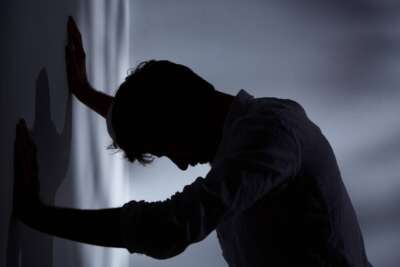
Anxiety is a tricky emotion. It can manifest in so many ways that sometimes people don’t even know they are suffering from it. In fact, according to the National Institute of Mental Health, nearly 40 million Americans experience anxiety on a regular basis.
The causes of anxiety are numerous. Life experiences, financial woes, work related stress, drug side effects, medical illnesses, caffeine, negative thinking and more can all be possible causes or triggers for anxiety. And the symptoms associated with anxiety are just as unique as the causes.
Here are some of the more common physical ways that anxiety can manifest in the body:
1. Muscle Tension / Pain – When you’re stressed out and anxious, your body goes into fight or flight mode. What does that mean for your muscles? They become engorged with blood to help you outrun bears or tigers and to make you look bigger and more intimidating. When you’re on edge, your muscles are constantly tensed. Eventually, you stop noticing the tension or may only feel it in localized areas, such as old injuries.
2. Headaches – Whether it’s a dull ache at the base of your skull, a sharp, stabbing pain near your eyes and frontal sinuses, or a pain right at the crown of your head, nothing can ruin your day like headache. Headaches are often a good indicator of your stress level. Frequent and / or long-lasting headaches may indicate a high level of anxiety in your everyday life.
3. Uneven Energy Levels – Anxiety can make you feel tired all day and then give you an in appropriate burst of energy in the evening that keeps you up at night. Or you may find yourself surging with energy while you’re “on” and exhausted when you get home to your loved ones. Another side of anxiety has you reluctant to face the world in the morning, so you elect to hit the snooze button and sleep until the last possible moment.
4. Poor Concentration – If you’re anxious, accomplishing anything can be a challenge. Your mind jumps from task to task and you find yourself wandering around your house instead of sitting and focusing. You may also find that your mind hyper-focuses, worrying about things that are outside your control or don’t require your attention at that moment.
5. Poor Appetite / Diet – When you’re anxious, you may experience a nervous stomach and loss of appetite. This can lead you to make poor dietary choices, filling up on sugar and caffeine to keep you going instead of eating healthy meals. You may also binge on whatever is convenient (often junk food), once your body’s hunger mechanism does kick in. Filling up after not eating for long periods can leave you feeling nauseous and without an appetite again.
6. Pounding Heartbeat – When you’re healthy, your heart beats in the background. But being aware of your heart beating in your chest can signal high levels of stress and anxiety, and is often associated with anxiety attacks. If you think you are having a heart attack or physical issues with your heart, see your doctor immediately. But if you know your body, you’ve been checked out in the past and everything comes back clear, then consider finding ways to address your anxiety.
7. Insomnia – Often when you’re anxious it’s hard to settle down and fall asleep. You may find yourself awake for extended periods in the night or you may wake before your alarm, wishing you could go back to sleep. In some cases, anxiety manifests as dream-disturbed sleep that leaves you feeling exhausted instead of rested.
There are things that everyone can do to help address anxiety and hopefully keep it from physically causing problems. Journaling, talk therapy, forest therapy, working with animals, deep breathing, meditation, grounding, exercise, sound baths, eating a healthy diet, prayer, singing, dancing, massages and acupuncture are just some of the ways that you can get a handle on your anxiety without the need for prescription medications.
The bottom line is that while everyone deals with anxiety, not everyone handles it the same way or even well. So if you are someone who needs help, don’t wait to reach out to someone. The sooner you address your anxiety, the less likely you are to end up with physical problems. And if you’re already at the point where your anxiety is causing physical issues, give us a call. If we can’t help, we will get you connected to someone who can. There is always hope.

